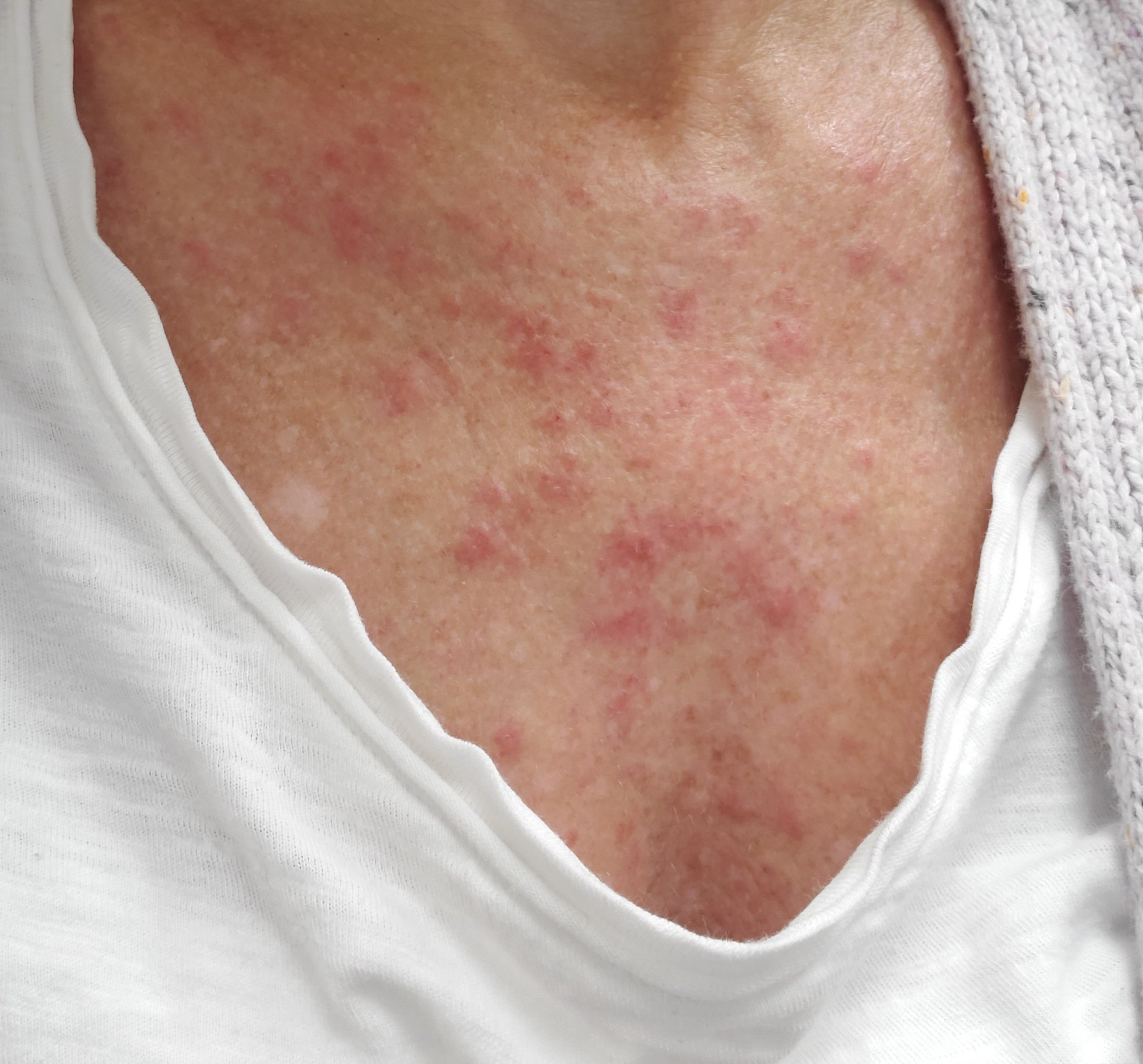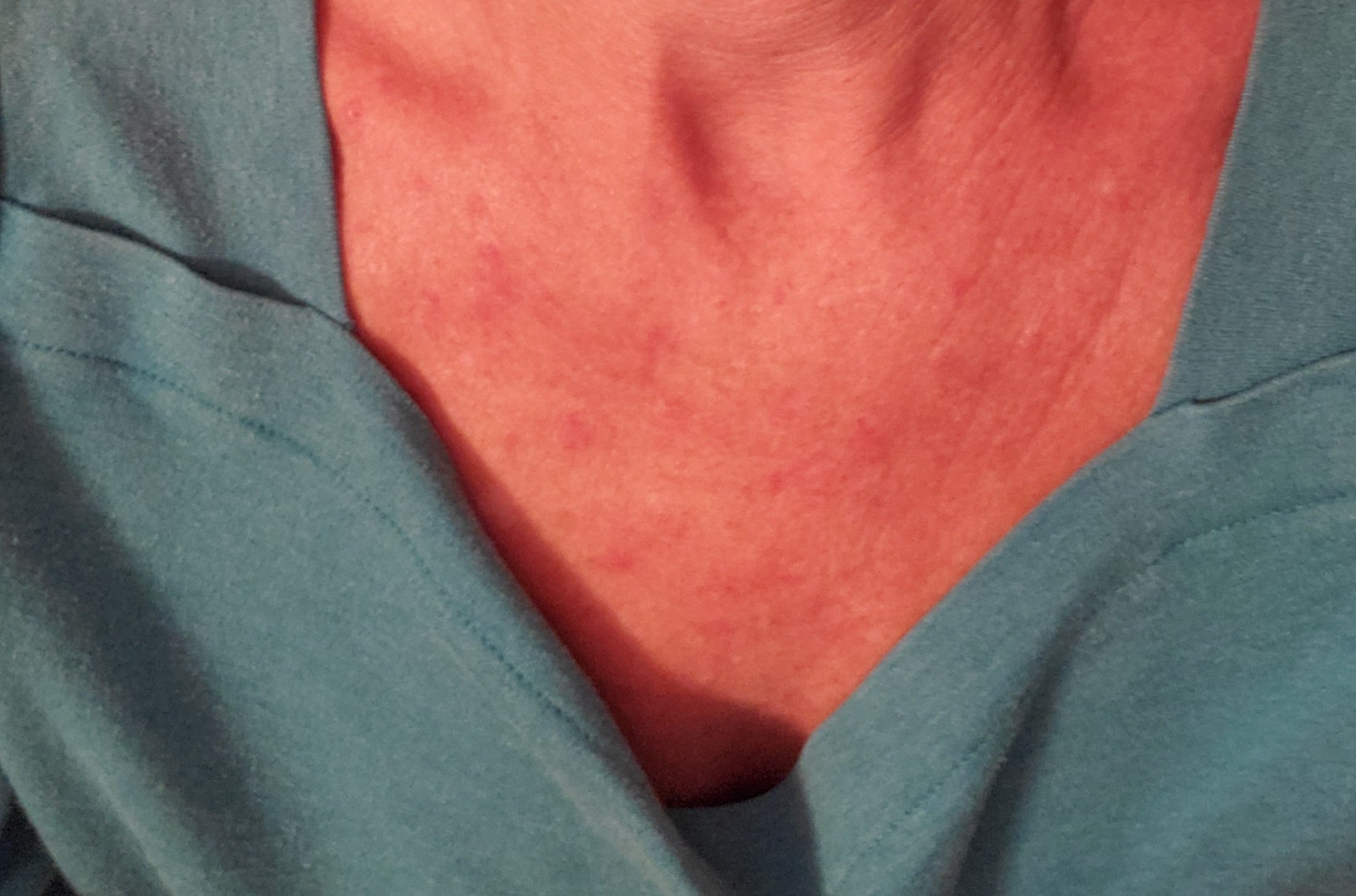The BALANCE between Complementary and Allopathic Medicine
Those of you that have known me for a long time know that I love the ocean, pools and being in the sunshine. As a small child, I spent summers sitting at the front of our boat, cruising the Long Island Sound. I was a lifeguard in high school. I have lived at high altitude for 30 years, six of those years at over 8500 feet in elevation. I absolutely have skin damage from the sun and have already been treated for non-malignant skin cancer. I also have psoriasis. Earlier in the course of my “disease”, one of the treatments prescribed to me, for my psoriasis, was to lay in a tanning bed. Psoriasis is a glitch of the immune system. The immune system receives a faulty message to attack the skin. UV light suppresses the immune cells in the skin and can moderate the psoriatic response. However, as I get older, I find that if I experience generous exposure to the sun, and I get a sunburn that damages my skin, my body experiences that damage as an enemy that must be battled at all costs. I try to be careful about my sun exposure and use mineral sunscreen liberally (conventional sunscreen is fairly toxic to humans, and to reef marine life!). I am not going to stop going to the beach, pool, or being outside in nature, because these are some of the things that bring me the greatest joy in life. Additionally, I have chronically low vitamin D levels that supplementation does not seem to help very much. Exposure to the sun is how our bodies make vitamin D naturally.
Recently my husband and I went on vacation in Florida. I did not lie in the sun (well, maybe for a minute to get warm after swimming). I spent almost all of our beach time under an umbrella. Still, I was exposed to the sun, because my husband and I like to swim and play in the ocean, ride the waves, etc. I applied lots of mineral sunscreen, but I ended up with a pretty good sunburn anyway. Fast forward a couple of days and I had a full-blown sun reaction on my upper chest. For me, this is the kind of reaction that penetrates to the nerves. It is extremely itchy and was more than super uncomfortable!
I tried all the natural aids in my aromatherapy and holistic health toolboxes, including (of course!) essential oils, hydrosol sprays, carrier oils (almond oil and coconut oil), natural lotions and pure aloe vera. Only hydrosols and aloe vera supplied minimal relief. One evening I tried German Chamomile essential oil, diluted in jojoba oil, which contains chemical constituents that give it anti-inflammatory properties, and it aggravated my situation so much that I had to wash it off. I am not sure why my reaction was so bad; it is possible that the oil had oxidized. It was old enough to have been manufactured before they stared putting expiration dates on the bottles, so it is kinda old. Maybe it was the sunscreen I used, which was probably less natural than the ones I usually use. As an Aromatherapist, it made me sad that I had a negative reaction to essential oils 😥.
After 5 days of this intolerable reaction, I broke down and contacted my Kaiser dermatologist, who was kind enough to look at a photo of some topical steroids I have accumulated over the past few years, but don’t use often, and let me know which one would help the most (thank you Dr. Gray for the free-of-charge help!). I applied it before bed and by the next morning, the reaction was bearable. I applied the steroid 4 times and that got it under control, and I was able to stop using the topical steroid and heal on my own. If my sun exposure had been less intense, or during the middle of the summer, after some more gradual exposure, this probably would not have happened.
My main point is this – sometimes alternative health modalities are not enough to help with an acute health issue. Often, during an acute health episode, we need to use allopathic medicine to aid our body in getting back on track. Aromatherapy is considered a complementary health modality, which literally means it complements other healing modalities, and allopathic (conventional) health care. It is not meant to replace it. Many health concerns can be supported with Aromatherapy alone. In our household we use Aromatherapy for: muscle overexertion after chores, generalized inflammation and improved circulation, to quell digestive discomfort, as a sleep aid, to ease allergy symptoms, for uplifting the mood and spirit, and for natural, non-toxic cleaning. We carry a “quease ease” blend when we travel, and I just used it on our trip during some wicked airplane turbulence. Sometimes Aromatherapy is that little push, that when combined with allopathic treatments, is just enough to turn the tide. Sometimes Aromatherapy can only provide minimal comfort when more aggressive treatment is required. It is all about finding the BALANCE that best supports your body.
I certainly don’t have skin that acts at all “normal”. For “normal” skin, essential oils can be a very effective treatment for cooling and healing sunburn, and even healing sun damaged skin. Below is a list of essential oils that support sun affected skin.
Essential oils that cool the skin: peppermint, spearmint, lavender (lavender is good for all types of burns!)
Essential oils that treat sunburn: peppermint, lavender, chamomile
Essential oils that aid in healing sun damaged skin: geranium, helichrysum, myrrh
Don’t forget the other natural items I mentioned too. Peppermint or chamomile hydrosols can be put in the refrigerator and spritzed on sunburned skin. Carrier oils provide skin with extra moisture. So do natural fragrance-free lotions. Both can be the base for delivering relief-providing, nourishing, healing essential oils. Aloe vera is also cooling and helps the skin to begin to heal from the burn.
For sunburn, it is especially important that you don’t over-apply essential oils and they must be diluted properly, otherwise you risk irritating already sensitized skin. If you don’t know how to do this, request my safety sheet on the RESOURCES tab. Also, try a very small area first, to make sure it will not aggravate your burn.
And, I just bought a cute long-sleeved UV protective swim shirt so next time I go to the beach or pool, I can protect my skin better – especially my poor chest!
Left picture May 3 before steroid cream, Right picture May 5 after steroid cream. The lighting is different but much improved!


